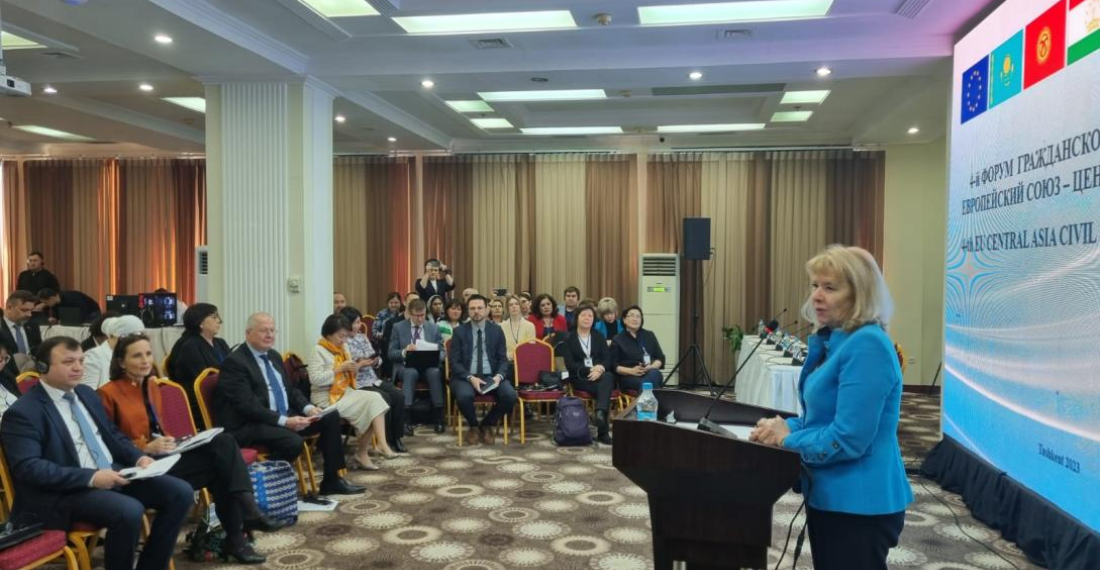The Uzbek capital, Tashkent, hosted the 4th EU-Central Asia civil society forum on Friday (10 March). It involved almost 100 representatives of civil society from across the EU and Central Asia.
The forum explored the ways to complement the EU’s Global Gateway Strategy building on the outcomes of the Samarkand Connectivity Conference, which took place on 18 November 2022.
The participants discussed how civil society could contribute to the development and implementation of the connectivity agenda, with a special focus on women, gender equality, and youth.
The event was commenced by the European Union Special Representative for Central Asia Terhi Hakala, Deputy Minister of Justice of Uzbekistan Alisher Karimov and the EU Ambassador in Uzbekistan Charlotte Adriaen.
EU's Global Gateway is also about "principles" of democratic values, high standards, good governance and transparency, and green transition
Speaking about the EU's Global Gateway Strategy, Terhi Hakala said: "Global Gateway is the EU’s positive offer to our partner countries in support of their own strategic autonomy. It stands for sustainable and trusted connections that work for people and the planet, to tackle the most pressing global challenges, from climate change and protecting the environment, to improving health security and boosting competitiveness and global supply chains. It covers five main sectors – digital, climate and energy, transport, health, and education and research."
She continued: "It might sound like it is about investment into hard infrastructure, but it is not. The ultimate goal is to deliver lasting social and economic benefits for local communities. So it is also about principles, which include democratic values, and high standards, good governance and transparency, green and clean transition and outcomes."
In her opening remarks, Ambassador Adriaen emphasised that the "EU will continue promoting an enabling environment allowing the civil society organizations to fulfill their functions as well as further support a meaningful and structured role for the CSOs in policy-making and strengthen CSOs capacity to function as independent players".







